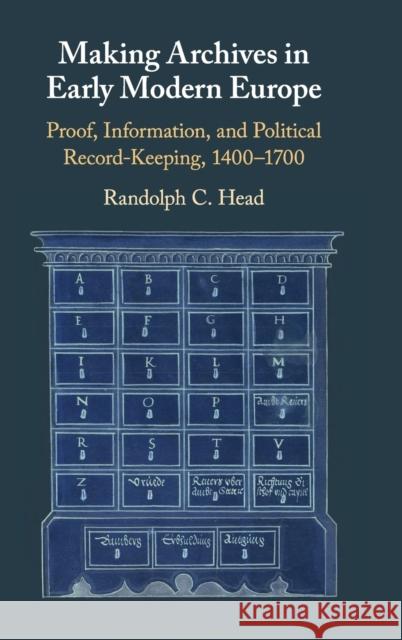Making Archives in Early Modern Europe: Proof, Information, and Political Record-Keeping, 1400-1700 » książka
topmenu
Making Archives in Early Modern Europe: Proof, Information, and Political Record-Keeping, 1400-1700
ISBN-13: 9781108473781 / Angielski / Twarda / 2019 / 364 str.
Making Archives in Early Modern Europe: Proof, Information, and Political Record-Keeping, 1400-1700
ISBN-13: 9781108473781 / Angielski / Twarda / 2019 / 364 str.
cena 516,69
(netto: 492,09 VAT: 5%)
Najniższa cena z 30 dni: 508,78
(netto: 492,09 VAT: 5%)
Najniższa cena z 30 dni: 508,78
Termin realizacji zamówienia:
ok. 16-18 dni roboczych.
ok. 16-18 dni roboczych.
Darmowa dostawa!
Compares the archives of European states after 1500 to reveal changes in how records supported memory, authority and power.











